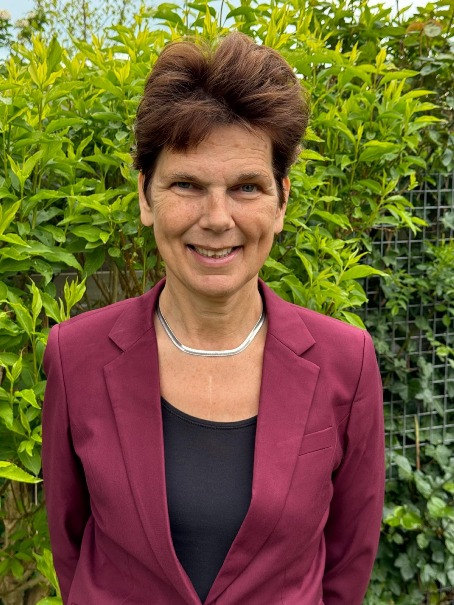Save the Date: PhD Defence Franka van den Hende
| When: | Th 20-06-2024 11:00 - 12:30 |
| Where: | Auditorium, Campus Fryslân (Wirdumerdijk 34, Leeuwarden) |

On 20 June, PhD student Franka van den Hende will defend her dissertation - entitled ‘Curriculum Internationalisation: A Dynamic Organisational Change Process’ - at Campus Fryslân. The ceremony consists of the official defence and a lay talk, so everyone is welcome.
Note: The defence can also be followed online via a livestream.
Internationalisation and diversity are nowadays described with many fine words in strategy plans of higher education institutions worldwide. In practice, however, internationalising educational programmes does not turn out to be so easy. It is often assumed that this is due to little interest and commitment on the part of academic staff.
This PhD study studies these issues as organisational change processes. Working with international dimensions and diversity in education requires many changes, from staff, students, programmes and organisations. For example, a teacher has to be able to deal with a group of students and colleagues with very diverse backgrounds in language, education, research, and culture. This can lead to misunderstandings and conflicts. A teacher also has to deal with rapid technological and social/ethical changes in the field. Courses are increasingly broader and more interdisciplinary. Finally, critical attention in the political debate gives rise to additional tensions and discussions. For instance, what is the significance of the choice of language for a programme, what does this demand from staff and students? And what are the implications for higher education institutions?
Handling dilemmas
Franka's research offers a structured approach and practical guidelines, such as:
-
to determine what can be changed (the content) based on a specific context and how best to approach it (the process);
-
to start from recognition of strengths and what has already been achieved, and facilitate staff through appropriate leadership and support;
-
recognise dilemmas, appreciate them, and balance them as best as possible.
An example of a dilemma is English as a common medium of instruction in teaching versus the use of multiple languages appropriate to the programme and background of staff and students. The additional use of languages other than English could be a good interpretation here. Another example concerns the use of international expertise, funds, and networks to strengthen 'broad prosperity' in the region ('think global, act local').
This thesis show that internationalisation and diversity have specific meanings and implications in each programme. The composition of staff and students, research and profession, labour market perspectives for students, and accreditations and programme profile are determining factors here. Strategies, financial and human resources, and the involvement of relevant stakeholders need to be better aligned with this. The findings can also be used when implementing other complex concepts in higher education, such as sustainability and digital learning.
In conclusion, this research shows what the conditions are for working effectively and meaningfully with diversity and internationalisation to contribute to quality, sustainability and innovation in higher education, communities, and societies.
About Franka van den Hende
Franka van den Hende has worked as a scholar-practitioner at the University of Groningen since 1992, in various roles and contexts, with internationalisation and diversity as a common thread.
